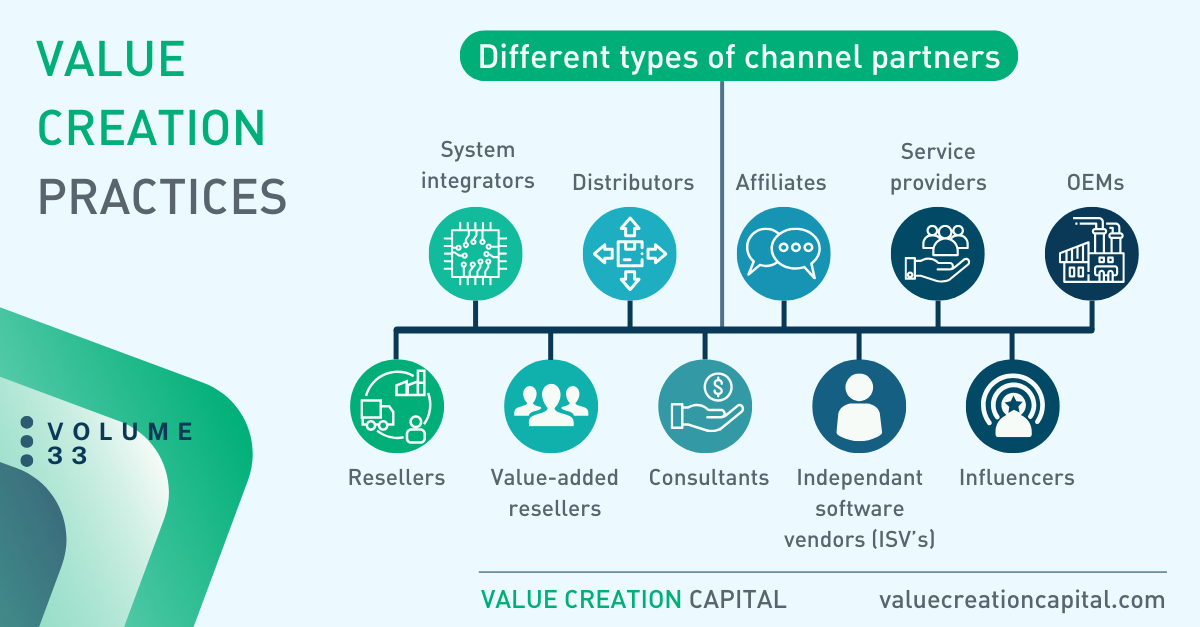The Diversity of Channel Partners

Identifying and recruiting the right channel partners is a critical process, which requires a strategic approach. It involves an deep understanding of your ecosystem with all relevant parties that could be supportive for your business goals.
Looking ahead, channel partnerships are very likely to become even more strategic. Recent developments indicate a shift towards technology-driven collaboration and data sharing. Understanding and responding to these developments is crucial for businesses aiming to stay ahead.
Channel partners are diverse entities that collaborate with a company to market and sell its products or services. The following types of channel partners could be categorized, most are relevant for both selling hard- and software:
- System Integrators: These partners specialize in integrating multiple products and/or software from different vendors in an existing infrastructure of their customers. They help ensure that all components of a new system work together seamlessly.
- Distributors: Distributors purchase large quantities of products (hardware) and distribute them to smaller resellers or retailers. They often provide additional services such as product bundling, inventory management, and logistics support.
- Affiliates: Affiliate partners promote a company’s products or services in exchange for a commission on sales generated through their marketing efforts.
- Service Providers: Service Providers offer services (either managed or not) for various business functions. They typically operate under a subscription model, providing ongoing service, maintenance and support.
- OEMs: Original equipment manufacturer generally refers to a company that produces software, parts and equipment that may be marketed by another manufacturer. A model intensively used for example in the automotive and the computer industry. An underrated partner model, since it can generate substantial revenue.
- Resellers: These partners buy products (both hard- and software) from manufacturers or service providers and sell them to customers. They may be generalists or specialists in a particular industry or product type.
- Value-Added Resellers (VARs): VARs enhance the value of a manufacturer’s products by adding their services or products before reselling the combined solution. This could include installation services, additional hardware, or custom software applications.
- Consultants: Consultants offer expert advice and may help businesses choose the right products or services. They may also assist with training, implementation and optimization.
- Independent Software Vendors (ISVs): ISVs develop and sell their (own) software products, which can complement or enhance the functionality of a manufacturer’s products (could both hard and software).
- Influencers: These partners leverage their authority or following in a specific niche to influence potential buyers and drive sales. Also becoming more relevant in a B2B environment.